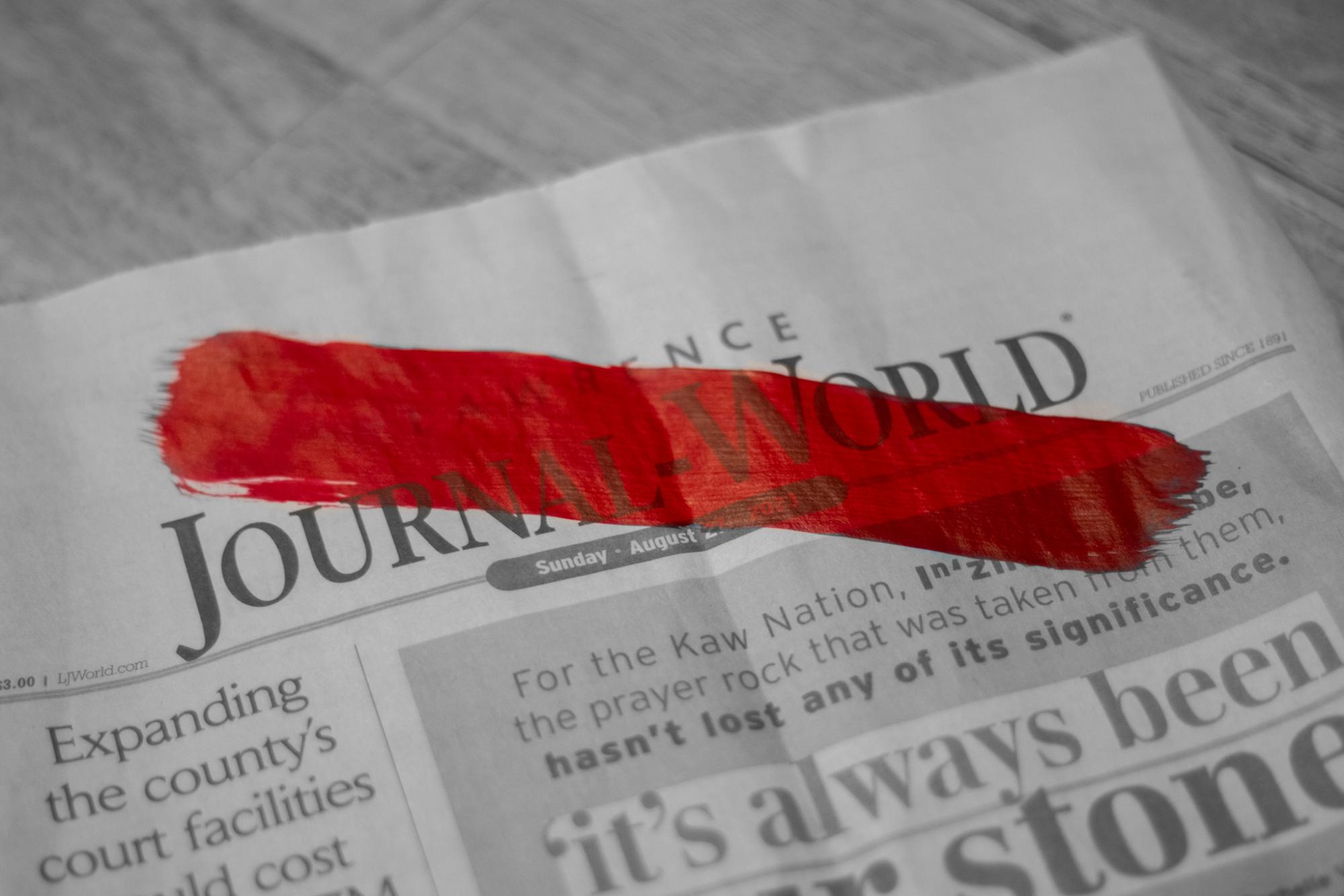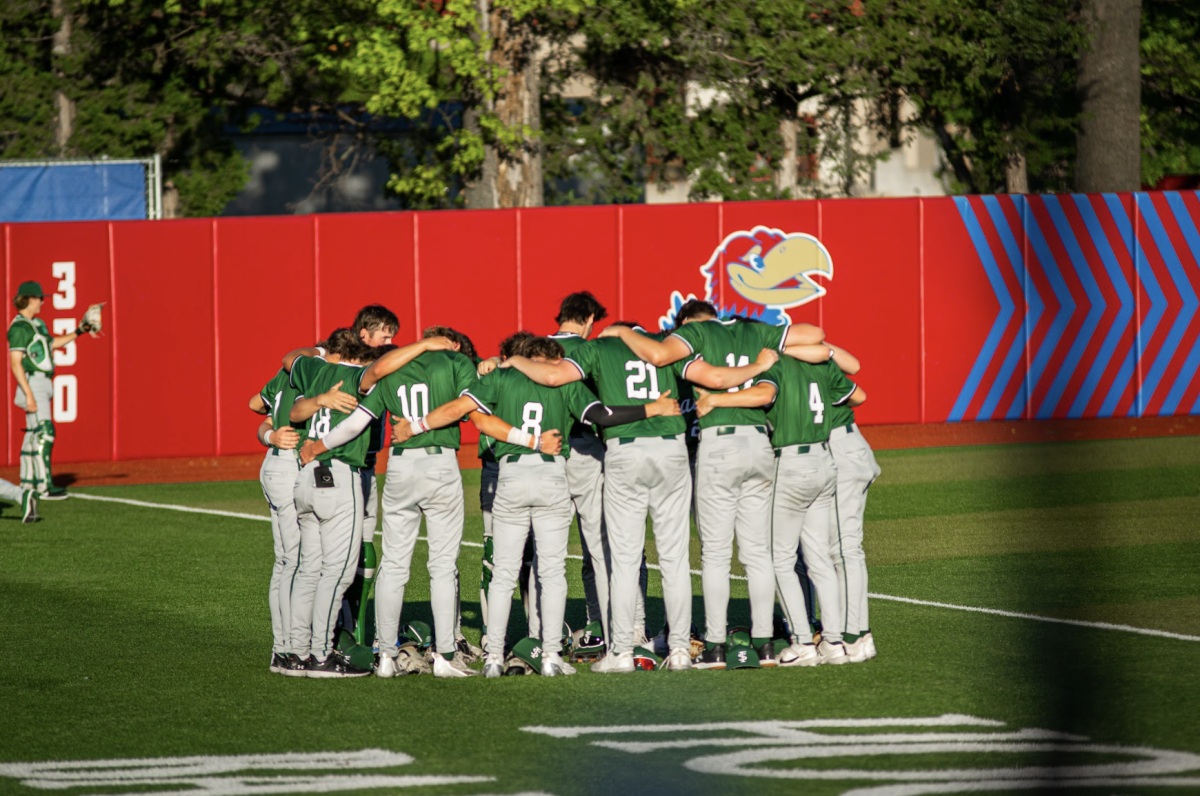As student journalists, we strive to amplify voices and tell unbiased pivotal stories in our community. This mission, containing journalistic integrity, could be applied to any news publication across the globe. The key part to our mission?
The importance of spreading accurate, unbiased information to all.
However, this mission, which we as student journalists along with every other news source including the Lawrence Journal-World hope to follow, has been recently criticized for its current state of “journalist integrity.”
On Aug. 25, Douglas County Deputy District Attorney Joshua Seiden filed a Douglas County District court request for a public record (affidavit) to be sealed that contained information regarding the arrest of Tristen Hollins, who was arrested for stabbing a man in a homeless camp. Seiden listed four reasons for the affidavit to be sealed, consisting of the protection of Hollins’ safety and the State’s investigation process.
“While the Lawrence Journal-World may claim that it requests this information because it is in the public interest, the sad reality is that the Lawrence Journal-World is a fledgling publication devoid of journalist integrity and constantly on the prowl for potential clickbait,” Seiden wrote in a court document.
However, Judge Stacy Donovan ruled to not seal the affidavit as it is a public record and the media has a right to this information. According to the court document, the state had “unreasonably disparaging and inaccurate characterization of the Respondent.”
Leading up to the hard-hitting criticism of the Lawrence Journal-World, a continuous disregard of free speech has dated back centuries, taking a toll on journalists throughout the country.
Near v. Minnesota in 1931. Tinker v. Des Moines in 1969. Hazelwood v. Kuhlmeier in 1988. And the latest? The Marion County Raid on Aug. 11 in our very own state of Kansas.
Zoom in on your Google Maps, and you will find the Marion County Record which is published in the small town of Marion, Kansas. The paper is printed weekly to local citizens.
On Aug. 11, The County Police Department raided the Marion County Record’s office, as well as the home of the editor and publisher. Files, laptops, computers and servers were all seized under a search warrant for accused identity theft.
One day after the raid of her own home and beloved newspaper, publisher Joan Meyer passed away from cardiac arrest. Her son, an editor of the Marion newspaper, believes the stress of the raid led to her death.
“She was so distraught…She lived in that house for almost 70 years. It was her castle. It was her safe space,” Eric Meyer said in an interview with PBS. “If she were alive today, she’d be pleased that her death has brought some attention to this story, and in a positive way.”
This act was a clear transgression of the First Amendment: the freedom of speech and press. The federal privacy law, which in theory should protect all journalists from unethical acts like the Marion County raid, was severed on Aug 11.
The unrightful raid on Marion County headlined national news, leading to intense criticism of the Marion Police Department and a triumph for local journalists, primarily for the weekly newspaper published in Marion, Kansas.
Attacks like these on press protections are unprecedented and unsuspected from journalists working to share truth within their communities, and should be treated with great concern.
In a time of rapid rise in media consumption, a priority of protection of free speech and press is urgently crucial to the future of student journalism.
Fighting against district policies. Bringing light to social issues in classrooms. Discussing toxic behavior from communities of students.
All topics, that we as student journalists, have been lucky enough to cover . Regardless of public criticism and pushback, the staff has been able to continue to uncover large truths.
Ourselves, and well as other surrounding student publications, are fortunate enough to possess protection from censorship from Public school administrators with the Kansas Student Publications Act. With the act, the Free State Journalism staff is free to publish the content they think is important, with the assumption it is not “libelous, slanderous, or obscene,” according to the law.
Journalists representing the Lawrence Journal-World, just like journalists throughout history, should continue to work against government censorship, fight public criticism and stand up for long-established First Amendment rights.
From wide-scale reaching all the way down to student journalists like us at Free State, we will progress through the simplicity of one thing — doing our job.

























